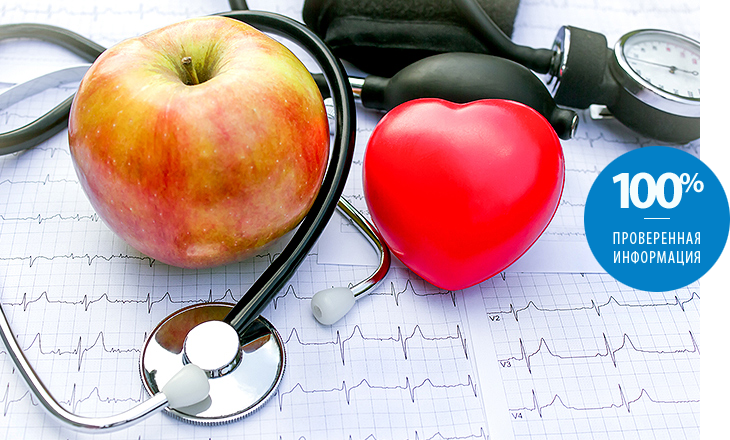
According to the World Health Organization, cardiovascular diseases are the leading cause of death among all age groups worldwide. In Europe, half of those who died over the past few years suffered from coronary heart muscle and lower extremities, angina pectoris, and myocardial infarction.
What is the danger of atherosclerosis?
Atherosclerosis is dangerous by deposition of atherosclerotic plaques on the walls of blood vessels, which are formed due to an excess of cholesterol. As a result, the body's normal circulation is disturbed, and ischemia of some organs develops. If you do not take action, then over time there will be a complete blockage of the vessel, the blood supply to the part of the body will stop, and the surrounding cells will die.
How is vascular atherosclerosis?
Depending on the location of the lesion of the blood vessels, coronary artery disease can be diagnosed, in which case heart attacks occur. With an excess of cholesterol, the vessels of the brain, limbs, kidneys, etc. are also affected. But the coronary artery supplying blood to the heart muscle suffers most often.
How to avoid cardiovascular diseases?
Long-term clinical studies have proven high efficacy of preventive measures. Scientists argue that the development of atherosclerosis contributes to several risk factors. Some of them are uncontrollable, for example, age, gender, genetic causes (burdened heredity).
But there are controlled factors that may change under the influence of competent preventive measures.
Risk factors
The most famous is the increase in the amount of cholesterol in the blood. Cholesterol (fat-like substance) is needed by the body in certain quantities for the formation of cell membranes, steroid hormones and vitamin D. But when it is abundant, various pathologies occur.
Another risk factor that is involved in the development of atherosclerosis is an increased amount of triglycerides (fats) in the blood. Havepeople with high body mass during laboratory tests have a high amount of cholesterol and triglycerides.
The development of atherosclerosis is promoted by endocrine diseases (diabetes mellitus) and a tendency to them, bad habits, high blood pressure (arterial hypertension of different degrees), an inactive lifestyle. All this leads to gradual damage to the walls of blood vessels.
How to identify the signs of the disease?
To do this, you must regularly undergo laboratory and diagnostic activities prescribed by a doctor.
The daily monitoring of blood pressure and laboratory blood tests several times a year with the determination of biochemical parameters, that is, cholesterol, triglyceride and glucose levels, are absolutely necessary.
How to reduce risk factors?
5 effective tips that work
What you need to eat:
- It is necessary to include in the daily diet of omega-3 fatty acids, beneficial effects on the heart, blood pressure, blood clotting, lipid metabolism.
- Every day you need to eat fruits and vegetables containing antioxidants and fiber.
- The level of cholesterol is reduced by grain, due to the high content of soluble fibers in its composition.
- As drinks, it is necessary to use low-calorie soft drinks, tea, mineral water.
What should be excluded from the diet:
- Products that overestimate the amount of saturated fatty acids (palm oil).
- Fat varieties of meat (pork, duck, goose, pork sausage, brawn).
- Fat dairy products (egg yolks, mayonnaise).
- Cooking salt.
- Desserts, cakes, sweetened drinks and alcohol.
How to cook food properly:
- Give preference to the grill, use non-stick pots, allowing you not to apply fat in cooking.
- Do not eat fried food!
To live an active lifestyle:
- Start gradually increase physical activity, first engage in walking, in the future - jogging, swimming.
- Physical activity should be regular and metered (at least 2-3 times a week).
Do away with bad habits:
- If you yourself can not quit smoking and drink alcohol, you need to consult a doctor. The doctor will select an individual method of treating addiction.
- With the appearance of withdrawal syndrome, which is accompanied by anxiety, anxiety, inability to concentrate and insomnia, you should not postpone the visit to a specialist. With these problems it is quite possible to cope.
Conclusion: preventive measures are accessible to everyone and can prevent the development of serious cardiovascular diseases, improve the quality and duration of life.
